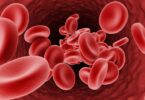Questions and Answers about Yeast:
Life cycle of yeast is
(a) Haplodiplobiontic
(b) Haplobiontic
(c) Diplobiontic
(d) All of the above
Yeast is
(a) Purely aerobic
(b) Anaerobic
(c) Rarely anaerobic
(d) Both aerobic and anaerobic
Oldest cultivated organism yeasts was discovered by
(a) Aristotle
(b) Linnaeus
(c) Leeuwenhoeck
(d) Theophrastus
Yeast cell divides by
(a) Mitosis only
(b) Mitosis and Amitosis
(c) Endomitosis and Amitosis
(d) Mitosis and Endomitosis
Yeast is an example of
(a) Bacteria
(b) Virus
(c) Fungi
(d) Algae
Related: Glycolysis mcqs with answers
In manufacture of bread, it becomes porous due to release of CO2 by the action of
(a) Virus
(b) Yeast
(c) Bacteria
(d) Protozoans
In yeast during budding which process occurs
(a) Synapsis
(b) Unequal division of cytoplasm
(c) Doubling of chromosomes
(d) Spindle formation
Baker yeast is
(a) S. cerevisiae
(b) S. ludwingai
(c) S. octosporus
(d) Schizosaccharomyces
Related: mcq on digestion
Meiosis occur in yeast in
(a) Ascospores
(b) Ascus mother cell
(c) Ascus
(d) None of the above
Yeasts cell wall is rich in
(a) Protein
(b) Cellulose
(c) Carbohydrates
(d) Lipids
Yeast differs from Rhizopus in being
(a) Multicellular and coenocytic
(b) Unicellular and uninucleate
(c) Unicellular and coenocytic
(d) Filamentous
Related: Respiratory system multiple choice questions
Yeast is employed for production of
(a) Curd
(b) Cheese
(c) Acetic acid
(d) Ethyl alcohol
In Albugo the food reserve is mostly
(a) Glycogen
(b) Volutin granules
(c) Protein granules
(d) Fat
The antibiotic obtained from the yeast is
(a) Ephedrin
(b) Saccharin
(c) Campestrin
(d) Polymixin
Related: kingdom Chordata questions
In yeast, cell wall contains
(a) Amylose and glucose
(b) Glucose and mannose
(c) Glucose and muramic acid
(d) Sucrose and mannose
Yeast are economically important because they
(a) Spread plant diseases
(b) Spread animal diseases
(c) Are used in tea and tobacco industry
(d) Are used in wine and baking industry
Which one is not a mode of reproduction is yeast
(a) Budding
(b) Plasmogamy
(c) Oogamy
(d) Ascospore formation
Related: questions about Immune System and answers
In Yeast the sexual reproduction is by conjugation. After fusion the zygotic nucleus divides meiotically and forms haploid spores. The unicellular structure with haploid spores is
(a) Sporangium
(b) Gametangium
(c) Ascus
(d) Zoosporangium
Yeast is abundantly found in
(a) Moist bread
(b) Horse dung
(c) Organic substances rich in fats
(d) Organic substances rich in sugar
Which is used for preparing alcohol
(a) Penicillium
(b) Lactobacillus
(c) Saccharomyces
(d) Acetobacter
Related: Laws of Motion test paper
Yeast is not included in protozoans but in fungi because
(a) It has no chlorophyll
(b) Some fungal hyphae grow in such a way that they give the appearance of pseudomycelium
(c) It has eukaryotic organization
(d) Cell wall is made up of cellulose and reserve food material as starch
Sometimes, in yeast, the conjugation takes place between a parent cell and a bud. It is called
(a) Isogamy
(b) Syngamy
(c) Pedogamy
(d) Parthenogenesis
Yeast is important source of
(a) Proteins
(b) Riboflavin
(c) Vitamin C
(d) Sugars
Related: questions for surface tension
Yeast is divided under the class
(a) Basidiomycetes
(b) Deuteromycetes
(c) Ascomycetes
(d) Zygomycetes






